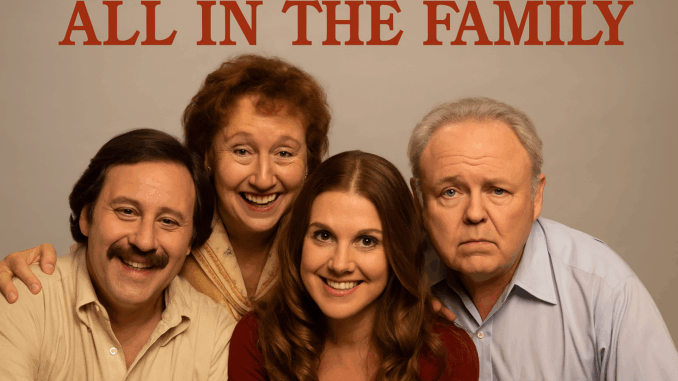
Explore how All in the Family broke boundaries, redefined the sitcom genre, and left a lasting legacy on television history.
When All in the Family premiered in 1971, it revolutionized American television. The sitcom, created by Norman Lear, didn’t shy away from controversial topics. Instead, it confronted them head-on, sparking conversations about race, gender, politics, and social change in living rooms across the country.
A Sitcom Unlike Any Other
Before its debut, sitcoms generally focused on lighthearted family stories. All in the Family changed that. Archie Bunker, played by Carroll O’Connor, became a household name as the outspoken, often prejudiced patriarch. His clashes with his liberal son-in-law, Mike “Meathead” Stivic, reflected the cultural divide of the 1970s.
The series showed that sitcoms could be more than just entertainment—they could also reflect reality and challenge audiences to think.
Tackling Taboo Topics
The show addressed issues rarely seen on TV at the time, including racism, women’s rights, homosexuality, and the Vietnam War. Episodes like “Sammy’s Visit” and “Edith’s 50th Birthday” remain iconic for their daring blend of humor and serious social commentary.
By doing so, All in the Family proved that television could spark important conversations and push boundaries without losing its comedic edge.
A Lasting Legacy
The impact of All in the Family can still be felt today. It paved the way for socially conscious sitcoms such as Roseanne, The Fresh Prince of Bel-Air, and Modern Family. The show’s success also spawned spin-offs like Maude and The Jeffersons, further cementing its place in TV history.
More than five decades later, Archie, Edith, Gloria, and Mike continue to remind audiences that laughter and learning can go hand in hand.